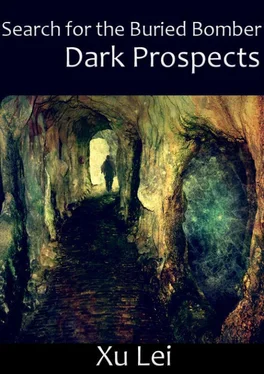
CHAPTER 39

The Mist
Iclosed my eyes. I was surely about to fall down, froth at the mouth, and die. Looking back on it, how unexpected my thoughts were. In the very moments before I was to expire, not for a second did I ponder the significance of my death. In the end, of course, I survived. You’re all probably aware of this. But while I wouldn’t say that I had any great revelation, at the very least this experience matured me. It was only after this that I understood what one would have to go through—the price one would have to pay—to become as calm and steady as someone like Old Cat.
So then, what actually happened? Why didn’t I die? I waited for death within that mist for over ten minutes. After a while I began to feel something new. The cold had begun to seep into my body. As my pores violently contracted, all the heat was sucked out of me. At first I thought this was the harbinger of death, but as I became colder and colder, to the point where I began to sneeze, I realized that something was amiss. Opening my eyes, I discovered the dense mist had already mostly dispersed. Ma Zaihai was standing beside the door with the deputy squad leader slung over his back, his expression as puzzled as my own.
There was no poison? How ridiculous all this was. How could this have happened? Had we really just been warring with nothing but our own minds? The mist had become very thin, not to mention cold as hell. Ma Zaihai was all huddled in on himself. The doorway was colder than the room. He glanced over at me, then slowly opened the door all the way. The mist seethed and our flashlight beams lit upon nothing but the roiling mass.
The deputy squad leader must have fainted from sheer exhaustion. Of the three of us, he’d overexerted himself most severely—both physically and mentally—and he was injured. He’d just passed out. We put our equipment in order. Then, with Ma Zaihai carrying the deputy squad leader, we stepped out of the iron chamber.
On all sides of us, there was nothing but mist. It obscured everything. Our flashlights were unable to illuminate even a few feet ahead, but at this point they were barely working anyway. The majority of the mist accumulated below our knees, white and thick, swiftly rising up, then thinly falling back down. It rolled as soon as we touched it, as if we were walking through a cloud. The air was so cold, after a few seconds I could no longer feel my legs, and only when they moved could I be sure they were still there. Already this cold went far beyond the icy chill of the underground river. We huddled in on ourselves and, feeling rather terrified, surveyed our surroundings. The falling temperature very quickly restored my train of thought. This mist was not the heavy gray fog we’d seen earlier, but rather the kind of freezing-cold water vapor often seen in large-scale freezers. But the temperature here was far lower than that of any freezer. It was just too cold.
We took out our sleeping bags and draped them over our shoulders, but they barely helped. I stamped my foot. There was iron grating running beneath us, covered with a layer of ice. An echo resounded each time I stamped down. Evidently, this was a relatively wide-open space. Where were we? What was supposed to be at the bottom of a dam? Shouldn’t the rotor for the main generator be sunk down here? How come it all resembled a gigantic icehouse?
We continued cautiously, the iron grating vibrating rhythmically beneath our feet. The farther we went, the thinner the mist became. Soon enough, I saw we were tromping along a walkway, like a ridge between two farm fields. On either side was a massive, square, concrete swimming pool–like depression riddled with cement ridges crisscrossing the frozen pools within. It resembled a work site for burning lime, only its construction appeared much more detailed. In the ice were a number of large black shadows, each the size of a small cow. I stepped carefully atop the ice to have a look at what was inside. It was frozen solid, the water at least six feet deep. I still couldn’t make out anything distinct about the shadows.
We continued along the grating, the cold increasing with each step. After 150 feet I already wanted to go back. Ma Zaihai couldn’t stop shivering. Then we saw a familiar iron wall, and, within this wall, a familiar airtight iron door. It was covered in a thick layer of ice and hung with long, daggerlike icicles. Broken shards of ice carpeted the ground, and a crowbar leaned against the door. Presumably, someone had recently used the crowbar to pry open the ice-sealed door. I let out a deep breath. Had Yuan Xile opened this door?
I picked up the crowbar and was about to stick it in the wheel lock and open the door when with a click, it suddenly turned, if only slightly. Ma Zaihai and I each took a quick step backward. We watched as the wheel slowly began to rotate. My instinct was to raise the iron bar in defense. Ma Zaihai planted himself against the wall beside the doorway. The door opened gradually. Just as I was guessing whether it was Chen Luohu or Yuan Xile, a swarthy face—big and flat as a pancake—emerged and blinked at us. All of us, including the owner of the big, flat face, froze in astonishment.
It took me a full minute before I recognized the dark face sticking out from behind the door as Wang Sichuan’s. This wasn’t slowness on my part. He was unrecognizable, like he’d just emerged from a slaughterhouse. His face was covered in crusted blood, the skin on his forehead all flared up, and there was something very unnatural about the blackness of his skin. A long time passed. Then at last he yelled out, “Old Wu, you’re still fucking alive!”
I stepped over and hugged him at once, the tears immediately flowing. Then Ma Zaihai recognized him and he started to cry, too. Wang Sichuan cried out in pain. For Wang Sichuan to have survived was just too wonderful. It felt like winning the lottery. But we military men frown on crying, so I used my sleeve to wipe my eyes. I looked him over. His clothes were all scorched, and when I hugged him I could smell the stink of something burned. “What happened to you?” I asked.
He swore loudly. He’d stepped on an exposed power cable, he said, and was nearly cooked alive. He’d gotten to the dam more or less the same way we had, though he’d climbed atop a different section. There he’d found a three-story-tall cement tower topped by a searchlight, likely some kind of guard post. At the top of the tower was an iron bridge that led to a door in the side of the dam, inside of which was some kind of power distribution room. Countless huge and worn-out power cables crossed through the room, their insulation layers already frozen and cracked open. He never would have expected electricity might still be running through them after so many years, but the moment he stepped on one he found his expectations refuted. First he smelled burning flesh, then felt like he was floating. His body went numb from head to toe and he shot into the air like a bomb had gone off. Ordinarily, a fall like that would have been very painful, but all he could think about was the smell of roast meat. He was just too hungry.
Seeing the hand gesture Wang Sichuan made to describe the thickness of the power cable, I felt once more how incredibly strange this place was. This kind of temporary dam would need no more than a small electrical generating unit to satisfy whatever illumination or other needs might arise. Based on the size of that cable, this dam was generating far more power than I thought. What did they need all that electricity for? There was too much here beyond my comprehension, and I didn’t have time to consider these questions.
Читать дальше














